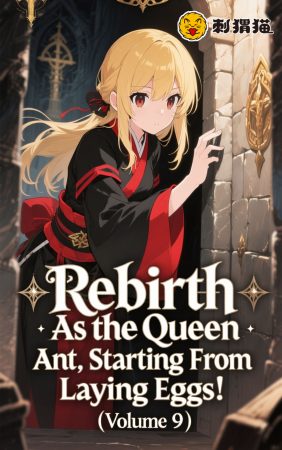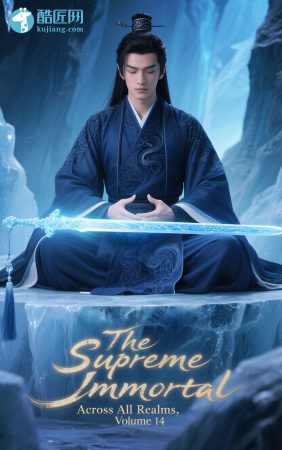Chapter 111
Our Discord Server: https://discord.gg/PazjBDkTmW
You can buy coins here to unlock advanced chapters: https://gravitytales.com/coins-purchase-page/
Chapter 111: Title
Ye Linlang—or rather, she should now be addressed as Prithvi.
Every civilization with an ancient heritage possesses its own mythology, and these narratives almost universally originate from matriarchal roots, at least according to Ye Linlang’s scholarly conclusions.
India’s mythological framework has been predominantly patriarchal, aligned with its dominant Aryan population. The matriarchal traditions belong to the Dalits, the indigenous people colonized over two millennia past.
Patriarchal societies inevitably elevate paternal myths as dominant narratives—a pattern consistent across India, Zhongxia, and other nations.
Yet India’s matriarchal legacy stands uniquely tragic. While other cultures saw maternal myths gradually supplanted through natural societal evolution, India’s patriarchal reconstruction deliberately diminished feminine divinities.
The Dalits’ matriarchal pantheon suffered systematic erasure following the Aryan invasion, their goddesses either reduced to consorts of male deities or erased from historical memory. Even Ye Linlang struggles to reconstruct these buried traditions from India’s mainstream myths.
Delving into the archives bestowed by the world consciousness, she discovered a pattern: ancient goddesses were either wedded to newer male gods or faded into obscurity within history’s relentless currents.
Ye Linlang grappled with a fundamental question—how to reconcile India’s mythological dissonance? During her contemplation, she recognized her flawed premise: excessive focus on deity-human relations.
For divine beings, what holds greater significance—mortals or dominion?
To gods, humans differ little from beasts—all mere inhabitants of divinely claimed territories. Primordial myths universally anointed these beings as "creator goddesses," like Nuwa and the Emperor of Heaven in ancient Huaxia, or modern-recognized Pangu.
Yet why would true deities permit their effacement? The Dalits’ earth mother cult was subjugated not through divine indifference, but because these gods were deemed nonexistent.
Herein lay Ye Linlang’s paradox: what circumstance would make a true deity ignore false gods usurping their domain? The answer couldn’t be divine nonexistence—not when the Awakening of Spiritual Energy proves their ancient reality.
Thus must mythology reemergent through humanity’s undiscovered paradigms.
India’s current spiritual crisis deepens this mystery. Despite 76% practicing Hinduism, no deity—not through priestly revelations nor miraculous interventions—has addressed the abyssal creatures ravaging the land.
Prithvi’s manifestation as the first returned deity signals change. When Neh, an extraordinary individual well-versed in antiquated lore, heard the golden radiance’s call, he witnessed divinity reborn.
"Neh."
The voice carried maternal warmth and cosmic authority. Golden light wove an aureate silhouette before the trembling mortal. Though radiance blinded mortal eyes, Neh understood—this was no being for mortal gaze.
"I am Prithvi. In time’s dawn, this land’s children named me Earth Mother."
The modern term felt foreign on Neh’s tongue, yet his research resonated with terrible clarity. Here stood the primordial goddess herself—not some reformed Hindu abstraction, but the true Prithvi of Dalit memory.
"Earth Mother…Prithvi…" Neh’s voice trembled with awe no scholar could feign. "What…what would you have of me?"
Before the divine presence, theological debates crumbled. Whether Hindu pantheon or foreign creed mattered not—this was deity incarnate, and Neh’s soul bowed instinctively.
Neh’s heart raced with worry. Ever since the deity appeared, they had been concerned that the god would not belong to "them" but to a race that once inhabited this land.
The Dalits had always been enslaved by the Aryans. To be honest, when Neh heard the name "Prithvi," he almost collapsed in fear and knelt down.
He was a descendant of the invading Aryans.
He did not experience the catastrophic disaster he had imagined. For some reason, Neh felt that the deity before him did not seem to care about the enslavement of the Dalits.
Thinking it over, he realized that if this deity truly minded, India would have long since faced divine wrath.
However, Neh was now more worried about the people outside who were about to face a nuclear strike.
"Do not worry. You have two minutes until what you fear happens," Prithvi seemed to see his worries, and a nearly motionless image appeared beside her.
Was this time stopping? Neh was astonished and heard the deity speak to him.
"I have no interest in humanity’s wars. I appear before you because the sealed evil god is stirring."
"What you see now is a fragment of my essence. My will remains asleep in the source sea, and my power restrains the prison, unable to expel the force overflowing from the evil god at this moment."
"I see your heart, your struggle, your desire for change, but just that is not enough. Your power is too weak, and the chains of this land are too heavy."
"When you seek to eradicate the power of the evil god, call upon my name, and I will help you."
Neh was stunned. He mustered his courage to ask, "Esteemed Prithvi, mother of all things, do you mean you will not hold India’s disrespect against you?"
This question felt like asking for death, but Neh had to ask. From Prithvi’s words, he inferred that this deity leaned towards the side of order; otherwise, she would not have descended before him.
"Disrespect? You have reminded me of something." Prithvi’s voice seemed to carry a hint of sarcasm.
"After I fell asleep, the gods that humans fabricated have exercised divine rights upon this land because I granted them that authority! It is not because they were born ‘gods.’"
"This right ceased to exist the moment they became seduced by the abyss and fell into darkness on the battlefield."
"I never expected that while I slept, you continued to worship these fallen gods. The myths you created make me laugh. Why do abyssal creatures appear in the human realm of India? The source world awakens, and the fallen gods stir with the intent to return to their primary form…"
"Take care."
Neh only heard a silent sigh at the end of her words and then found himself back in the living room where he had originally been.
"What on earth was that golden light earlier?" Anna asked, looking at him.
"Contact Major Angono and tell him I have a way to deal with that abyssal creature and to halt the launch of nuclear weapons," Neh said without a moment to lose.
Neh raised his hand and looked at the time on his watch. There was just a minute and a half left until the launch. He really did just see a deity—! Although it felt like a long time had passed, only a brief moment had gone by.
The deity’s power was so immense that it could even pause time.
"What?"
"Mr. Neh, what happened?" At that moment, soldiers rushed in from outside.
"Fire!"
"Oh, okay!" Anna jumped in surprise and quickly made the call.
*
Back in the slums, Ye Linlang had already arrived early to meet Neh, shedding the guise of the earth mother Prithvi and revealing her true self.
However, no one could see her.
"Where did the time stop come from? If I could do that, I wouldn’t bother wearing a disguise." Ye Linlang shook her head with a smile. The so-called time stop was merely her speeding up Neh’s thought process.
Sometimes, people feel much time has passed only to find it has been just a few minutes; accelerated thought can be akin to "stopping time."
Neh appeared quite clever; she assumed he would understand her words, Ye Linlang thought.
She wasn’t one to ramble, nor did she have nothing better to do. The things she said carried the information she wanted to share. However, Ye Linlang did not expect Neh to be so reckless.
He dared to ask “Prithvi” about her views on the altered myths in front of her!
Ye Linlang’s response was: no reaction at all.
Myths are all fanciful and baseless; is it enough to say that a goddess is inferior to a god? Myths without evidence to support them are false. What humans create for their amusement cannot possibly matter to the gods.
A scholar’s tale of a rich heiress loving a poor scholar would, to the heiress, simply draw a smile.
Similarly, deities would hardly care about the delusions written by mere human ants.
If a temperamental deity were to get angry, they might punish humanity, but "Prithvi" is a god born of rules, and in a sense, is more like an unfeeling entity. Only humans believe that gods have human-like emotions and desires.
That is what it truly means to "be born a god."
"However… Prithvi shows no interest in seeking retribution over these myths. As for the other deities, I cannot say." Ye Linlang stroked her chin. Besides Prithvi, who was one of her guises, the other deities in India possess their own consciousness.
Deities should not interfere with the world where humans and all beings exist; their power is too strong. Once they enter the scene, it is like flipping a table with no difference. Prithvi’s appearance still requires Neh to take action. She’s surrounded by humans who fear death and flatter deities to change societal rules.
But is that effective? India’s social system needs change from the ground up. Many of the lower-class people believe themselves to be inferior, and even divine descendancy wouldn’t help change their minds.
—Unless the deities were to grant everyone a sudden reset, directly using divine power to alter thoughts.
Ye Linlang found this notion dismissive; her ability to perform such an act did not mean she would.
Trying to save something that is rotten is pointless.
"If even with ‘Prithvi’ as a backing, there is no way to achieve reform, then I’ll have to find someone else," Ye Linlang murmured to herself, knowing that Neh would soon arrive here, attempting to stop the rampaging abyssal creatures.
Then, because he couldn’t defeat them, he would turn to Prithvi for help, and a divine descent would be inevitable.
The deities descend, but they are not the gods one expects. Ye Linlang found herself curious about India’s reaction.
What would it be like?












